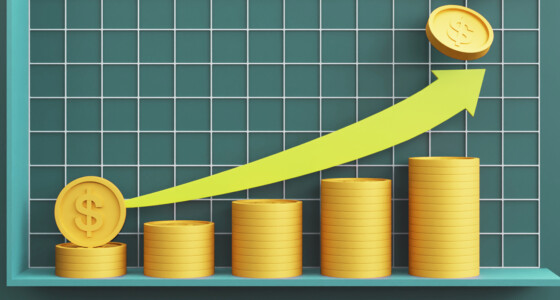

What are chart patterns?
Chart patterns are special graphical formations that appear in the chart and warn traders about further price movement. There are two types of chart patterns: classical graphic patterns and candlestick patterns. Some technical analysts may add price-action patterns as candlestick pattern modification.
We may also divide all trading patterns into two main groups: reversal patterns, which help identify where the price reverses and changes its direction, and continuation patterns, which help understand that the current trend will continue.
Usually, it’s easier to identify reversal patterns than continuation patterns, but continuation patterns are safer because a trader follows the primary trend by using them.
Review the most common reversal and continuation patterns and learn how to read chart patterns.
Reversal chart patterns
The most common classical graphical reversal patterns are Head&Shoulders and Double tops/bottoms. These patterns are based on the idea that buyers or sellers cannot reach new highest highs or lowest lows and soon give up under the pressure of the opposite group in the market.
Head and Shoulders consist of the three highest highs. The highest high in the middle is the maximum price in this particular trend. This is a head, while the left and right maximums are called shoulders. Bulls are trying to push the price up and reach the head of the pattern, but then the price starts falling. Bulls don’t want to give up fast; that’s why they try to attack again, and the price forms the second (left) shoulder. This shoulder is usually lower than the right one. Unfortunately, bulls are weak, and the price starts falling. The trend changes.
The Reversal Head and Shoulders pattern is the same formation that appears in the bearish trend.
Double top/bottom patterns remind head and shoulder patterns without a head. They consist of two highest highs/lowest lows that are local maximums/minimums for the price in this particular trend. The price cannot break these local extremums; it reverses and starts moving in the opposite direction.
It’s simple to find classical chart patterns in the line chart. You may choose the line chart in the Binomo platform and try to find these patterns. But what if a trader chooses the Japanese candlesticks chart?
Classical reversal candlestick patterns are bullish/bearish engulfing. These are patterns that consist of two candlesticks with different colors. The stronger the trend before the patterns – the more reliable the patterns themselves.
Bullish engulfing/bearish engulfing consists of two candlesticks. In bullish engulfing, the first candlestick will be red and the second – green. In bearish engulfing – vice versa. The idea is that the second candlestick’s body (green or red rectangle) should cover (engulf) the body of the first candlestick. With a higher probability, the price will change its direction.
Continuation chart patterns
There are a couple of classical graphical continuation chart formations, such as bullish/bearish flags and pennants.
The bullish flag is a formation that appears on the bullish trend. The price goes up, but buyers need to fix their profit occasionally. That’s why the price starts falling slightly and forming a small parallel correction channel. Visually, it reminds me of the flag. The bullish pennant is almost the same, but the price forms a small falling triangle that reminds one of a small pennant. After breaking above the flag or a pennant, the price starts rising.
Bearish flags and pennants appear in the bearish trend (when the price is falling). The idea is the same – sellers are pushing the price lower, but occasionally, they want to fix their profit. That’s why short corrections start appearing in the chart. That makes it possible to open positions down and to keep following the primary trend.
Continuation candlestick patterns are a little bit more complicated than reversal ones. If you want more information about them, you may read the book Japanese Candlestick Charting Techniques by Steve Nison.
Conclusion
Now you know more about different chart patterns and how to use them. Time to practice. You must open the Binomo platform and look attentively at the chart to do this. We’d like to wish you profitable trades.




